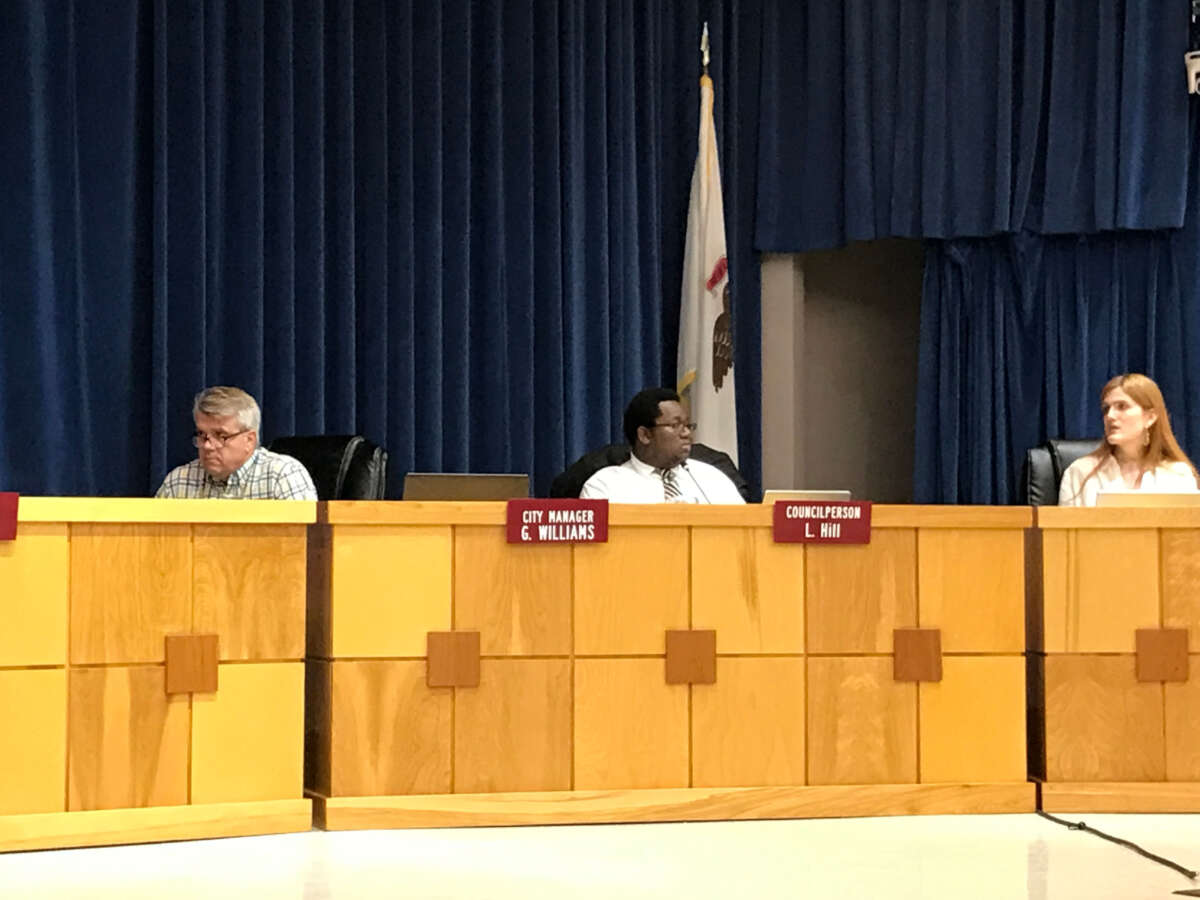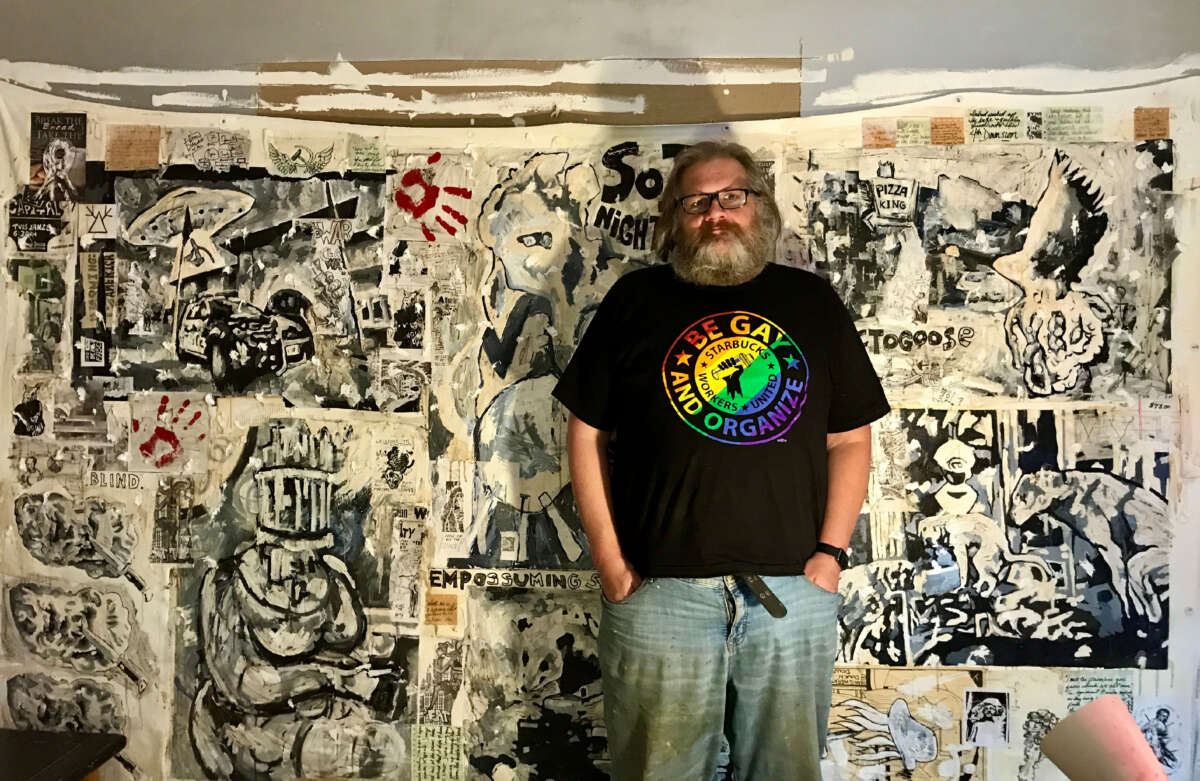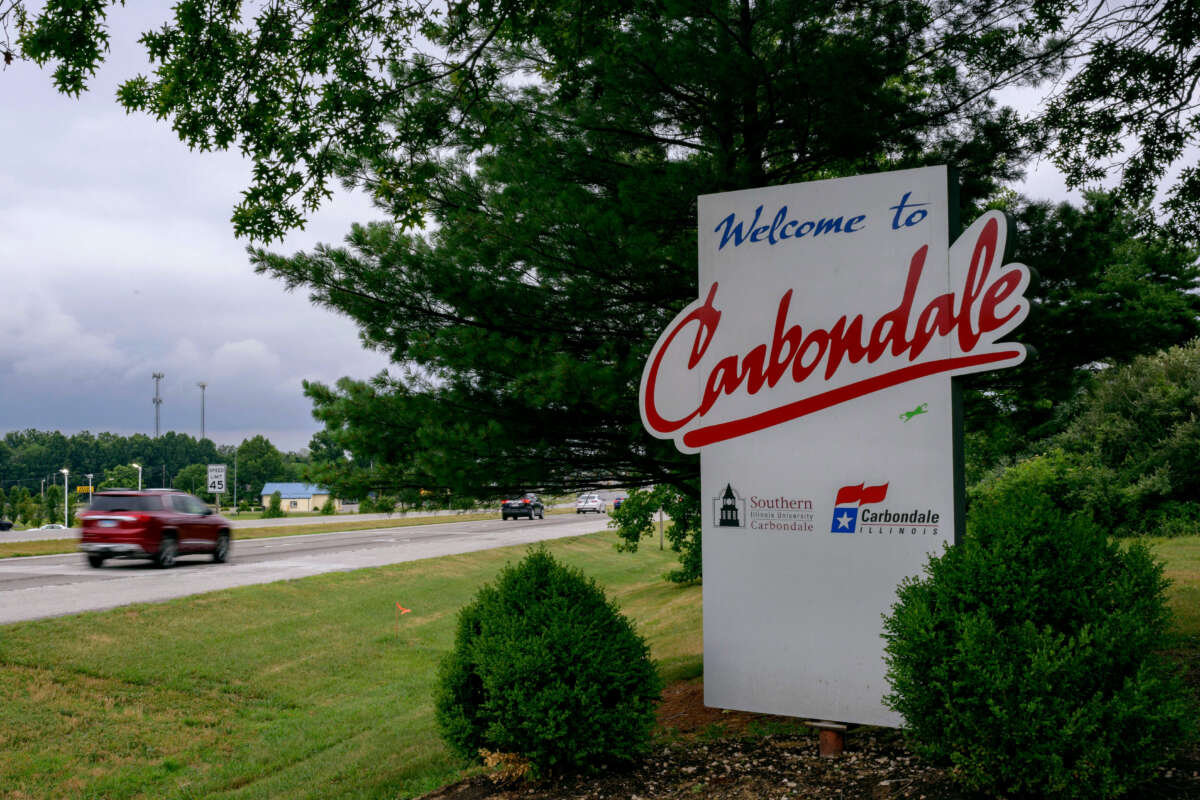To protect residents and visitors from the effects of right-wing repression so prevalent in the southern Illinois region, the Carbondale City Council has laid two new cornerstones in its legal infrastructure. On July 11, in front of a packed chamber, the council and mayor received a standing ovation after enacting a bodily autonomy ordinance stating the City will respect and protect the fundamental right of individuals to make autonomous decisions about medical care. It prohibits city employees, officers and departments from cooperating with states seeking extradition or even just providing information about out-of-state visitors seeking lawful medical treatments in Illinois.
To preempt further attacks, the council also adopted a companion ordinance which creates a legal receptacle in the city’s code for expanded protections — a new human rights title. Title 22 will house the adopted bodily autonomy ordinance and whatever additional rights the council adopts over time. At the meeting, City Attorney Jamie Snyder characterized its preamble — which points to areas of potential rights for workers, tenants and religious worshippers as well as non-worshippers — as the council’s statement of policy, not yet imbued with legal force. The categories of rights will have to be taken up for consideration by the council along with public input and will be enacted (or not) one by one.
Councilperson Clare Killman, a clear-eyed, 27-year-old trans woman with a helpfully wonky predisposition, took the lead in drafting the ordinances. She modeled the bodily autonomy ordinance after Chicago’s, but told Truthout the human rights title may be an innovation because of “the amount of rights that we’re willing to enumerate as a city.” The list of rights already demarcated in the reserved chapters will likely be expanded.
Killman designed Title 22 to be a living, breathing instrument whose form will be determined by its functions. “We need the flexibility to be able to shift and change what our values are as constraints and contexts shift around us,” she said. City Attorney Snyder “ensures all of the language is ironed tight, and so I feel very protected in moving forward, listing and developing the language around affirming — and asserting, even — our human rights.”
Victor Ludwig, the student trustee for the Young Democratic Socialists of America (YDSA) chapter at Southern Illinois University, told the council he wanted to see workers’ rights enshrined “in a way that our state government and federal government have been slow to do.” Ludwig came to the public comments with a laundry list of rights he hopes Carbondale City Council will take up: “I want to see that undocumented workers receive more protections and places where they can actually bring complaints to. I’d like to see an increase in minimum wage to one that actually supports the population of the city,” Ludwig said. “As someone who deals with an apartment that’s not up to par, I want to have the ability to do rent stoppage for infestation. That’s a very real thing to me, I have to live with the fact that my cockroaches don’t pay rent like I do.”
For their turn at the podium, co-chair of Southern Illinois DSA (SI-DSA), Carbondale artist and left intellectual Adam Turl asked the council to pass Killman’s proposals with a sense of urgency the situation merited.
“What we need to do is to send a message that this is a line in the sand, and they [the far right] will not pass it,” Turl said to a burst of applause. “Because they’re not going to stop with reproductive rights and queer and trans rights. They’re going to keep going after more and more people’s rights in a pursuit of some sort of … fantasy of a cis heteronormative white Christian bullshit nation that doesn’t exist and never has.”

For Killman, Protecting Rights Is Personal — But Efforts to Organize Were Collective
It’s Killman’s hope that establishing a plenitude of human rights in Carbondale will incentivize those who’ve been feeling hopeless or suffering through indignity to come live in Carbondale to enjoy the rights, and help them uphold them.
“We are ringed by very conservative states, and are the last hope for a lot of people in any one direction,” Killman told Truthout. “We know how to protect and defend our values. No one else can do that for us,” she said about the city that became her refuge a decade ago.
When Killman was 14 years old, her parents subjected her to what she’s termed a “pretty rigorous” form of conversion therapy multiple times a week in a “tawdry basement” of a church in St. Peters, Missouri. Three years later, Killman threw all she owned in the back of her truck and fled to Carbondale, where she has thrived. The town of 25,000 is largely working-class with a rich history of labor, anti-Klan, anti-imperialist, anti-racist, Black Panther and LGBTQ resistance. It also has a DIY culture that was formative for many of today’s supporters of the ordinances. Many queer people have found their grounding, safety and acceptance in homegrown bands and zines, some of which were entwined with left politics.
“It is my obligation to make Carbondale as hospitable as possible,” Killman said.
Inasmuch as politics is the art of ideas, she “identifies as a politician,” one who believes power should be centralized at the lowest level where elected officials are most accessible.
“Power should not be cordoned off behind bureaucracies removed from the conditions of daily life,” Killman said. “Those ‘representatives’ will have no way of meeting their people’s needs, because they have no idea what their people’s needs are.”
Sworn in on May 10, she’s known for being both accessible and accountable to the various activist formations — YDSA, SI-DSA and Carbondale Assembly for Radical Equity (CARE) — that comprise her broad electoral base. She’s only a Signal message away to many people with whom she has organized in past vital struggles, most significantly as a political organizer for Carbondale Spring. In the three and a half years it was active, the organization helped community gardeners grow food on vacant city lots to increase food autonomy while working to reduce the municipal police budget.
From the tail end of January 2023 until the April 4 election, the head of YDSA’s action committee and SI-DSA’s co-chair, Luke Herron-Titus, coordinated a 10-week canvass promoting Killman’s candidacy in the neighborhoods beyond the university. The substance of Killman’s platform — fair housing, just working conditions, a broader vision for public safety beyond traditional policing and freedom from genocide — had been partly shaped by the talks she’d had with YDSA members (including Victor Ludwig) prior to their endorsement of her candidacy, Herron-Titus told Truthout. Half of the platform, housing and workers rights, has already found its way into the preamble of the ordinance establishing Title 22.
Herron-Titus says there was movement energy being generated by labor that got multiple networks “firing on all cylinders.”
“Leading up to the ordinances, our Starbucks comrades were out on the picket line because Starbucks was capitulating to the far right in not allowing people to wear Pride regalia,” he said. “Then they did a Drag Bingo fundraiser for CARE. With a little bit of labor power, there came that consciousness that we have to use economic means to push back, but also political mobilizations to get everybody to come together.”
“Expanding our notion of what rights are, and then incorporating as much freedom into the daily lives of the residents of Carbondale, even the ones who don’t vote, is important,” Killman said.
Turl holds a similar view. “Electoral work is important, but so is work that creates a broader ethos in the community,” they observed.
Turl credits local organizers in Carbondale for avoiding sectarianism, and not allowing opposing stances on electoralism to keep them from the work at hand.
“Even if we do disagree about a particular candidate or election, it doesn’t mean we shouldn’t be working together on other stuff,” they said. “Nobody’s pure, and in Carbondale, anarchists, socialists, libertarian socialists, activists, folks who are more liberal, are working together for a common goal.”
They’ve found they can actually add their weight onto the balance of forces locally in a way they just can’t do nationally.
“We can go out and canvas,” Turl said, “and we can have conversations with the most left-wing person on the city council, and maybe hope to achieve something locally. Whereas in national politics, there’s not much echo of progressive, critical or socialist ideas.”
People in cities everywhere should fight for these protection ordinances, even in supposed safe states like Illinois, Turl says. “This attack is really the cutting edge of a far right, increasingly fascist attack on everybody by a small minority of racist, wealthy, white quote unquote Christians undemocratically controlling these areas and trying to leverage that against the population of the entire country.”
Turl is the co-organizer of the Born Again Labor Museum, which has become a key movement space since opening in Carbondale in March 2022. The museum, along with Rainbow Cafe and the Unitarian Fellowship, are home bases for organizing, mutual aid, political education, art making, fundraising events and community building “for different groups of people working together not always on the exact same thing, but mutually reinforcing,” Turl said. “You need that.”

An Ongoing Need for Bodily Protection
People associated with all of these spaces were involved in discussions of how the ordinances could be used to defend those in need of protection. Several spoke at the July 11 meeting, laying the stakes on the line.
O.J. Duncan, board chair of Rainbow Cafe and longtime queer activist, told the meeting that the first time he ever had sex it was a felony. He was in Texas, it was before 2003 and Lawrence v. Texas hadn’t yet overturned the state’s sodomy laws. By contrast, the first time he was raped, it wasn’t even a misdemeanor “because rape and sexual assault required a vagina to be penetrated and I don’t have a vagina. I’m not telling you this to share my sexual history or my trauma, but to share that some laws and policies are just horrible.” He pointed out that the ruling that allowed same-sex marriage, Obergefell v. Hodges, relied on Lawrence v. Texas, which relied on Roe v. Wade.
“Trans people are scared,” Duncan said. “Women and people with vaginas and uteruses are scared. Gay, bi, pan, demi and queer people are scared. We need to make a statement and tell people, ‘We welcome you and we will provide reproductive and gender-affirming care to you and we will not extradite you or report you that you came here for care.’”
According to Turl, the path to enacting a bodily autonomy ordinance and human rights title in a city code anywhere will start with a conversation among friends or comrades prompted by some basic questions: “Who do we know that can help us? Can we start networking with them? Do we know anybody that needs help getting out of here? Do we know anybody on the city council that would put this forward? If not, should we run somebody? Who do we know that would run, or should one of us run? What’s the first thing we can do that will actually make concrete results?”
What that first thing is will vary from place to place. The main thing, Turl says, is that “you’re actually doing work here and now with people trying to make people’s lives better, and having solidarity with the people around you.”
Killman hopes legislators in other locales will grasp that the key to advancing measures in Carbondale was that the council respected the organic nature of the process and let needed protections drive the shape of the code, rather than defaulting to the existing form of the code and using that as an excuse to limit protections.
“What came first was strictly just a bodily autonomy ordinance, but there was no place to put it, and so it necessitated that the code shift. Then I had to create a human rights title, which I feel very lucky that it passed, because that’s a much bigger ask.”
Media that fights fascism
Truthout is funded almost entirely by readers — that’s why we can speak truth to power and cut against the mainstream narrative. But independent journalists at Truthout face mounting political repression under Trump.
We rely on your support to survive McCarthyist censorship. Please make a tax-deductible one-time or monthly donation.
